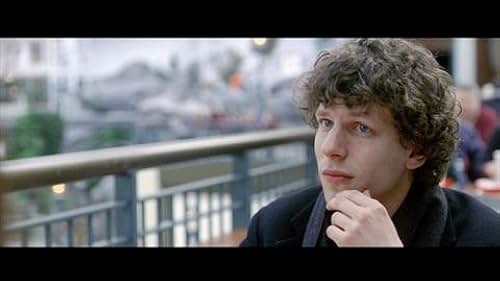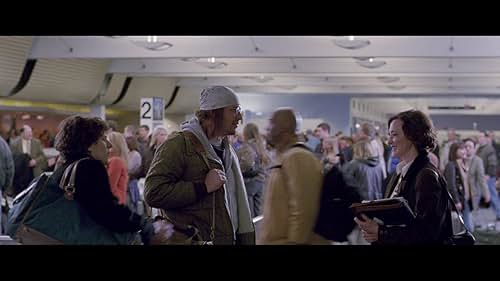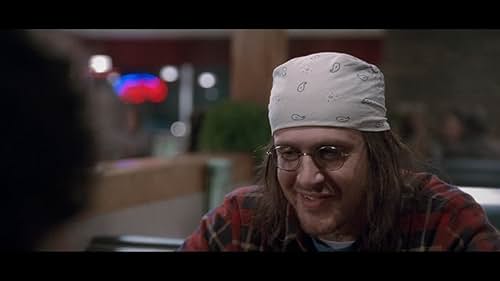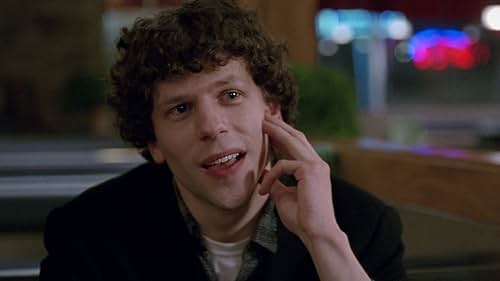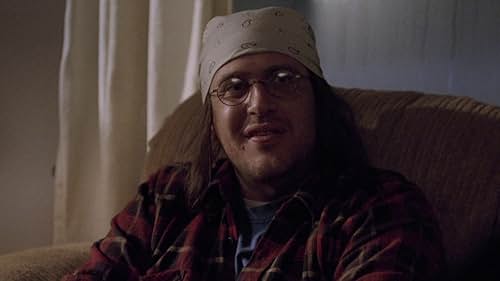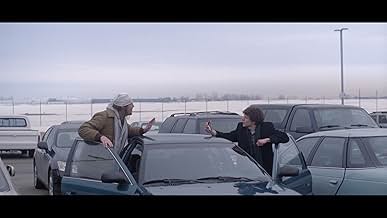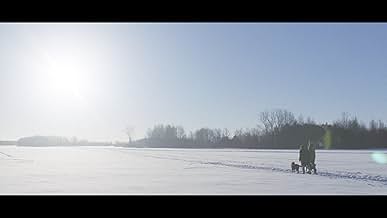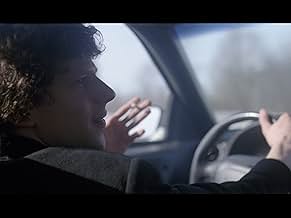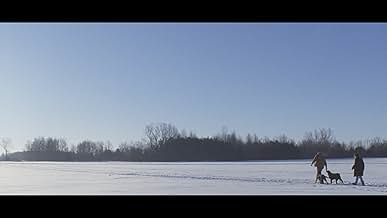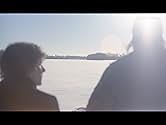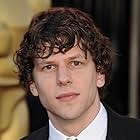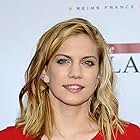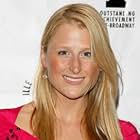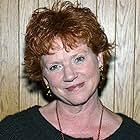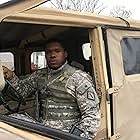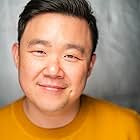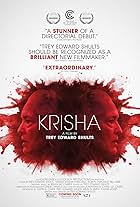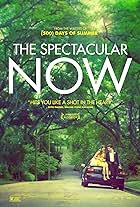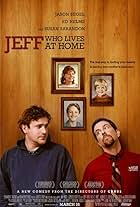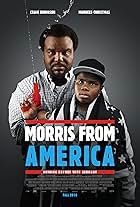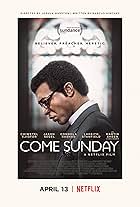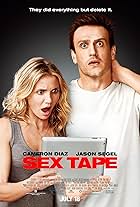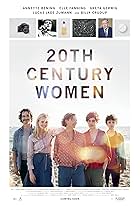The story of the five-day interview between Rolling Stone reporter David Lipsky and acclaimed novelist David Foster Wallace, which took place right after the 1996 publication of Wallace's gr... Read allThe story of the five-day interview between Rolling Stone reporter David Lipsky and acclaimed novelist David Foster Wallace, which took place right after the 1996 publication of Wallace's groundbreaking epic novel, 'Infinite Jest.'The story of the five-day interview between Rolling Stone reporter David Lipsky and acclaimed novelist David Foster Wallace, which took place right after the 1996 publication of Wallace's groundbreaking epic novel, 'Infinite Jest.'
- Awards
- 4 wins & 18 nominations
- Bookstore Patron 2
- (as Jennifer Holman)
- Director
- Writers
- All cast & crew
- Production, box office & more at IMDbPro
Storyline
Did you know
- TriviaThe song heard on the soundtrack when the film ends is "The Big Ship" by Brian Eno, one of David Foster Wallace's favorite songs. It was also used for the climax of Me and Earl and the Dying Girl (2015), another film that premiered at the 2015 Sundance Film Festival.
- GoofsIn regards to the scene where Mrs. Gunderson gives Mr. Wallace and Mr. Lipsky a car tour of Minneapolis sites: The Mary Tyler Moore statue on Nicollet Mall in Minneapolis, was not given to the City by TV Land until 2002. Also, it is not legal for cars to drive down Nicollet Mall.
- Quotes
David Foster Wallace: It may be in the old days what was known as a spiritual crisis: feeling as though every axiom in your life turned out to be false... and there was actually nothing. And that you were nothing. And that it's all a delusion and you're so much better than everybody 'cause you can see how this is just a delusion, and you're so much worse because you can't fucking function.
- Crazy creditsHalfway through the closing credits, there is an extra scene told from the perspective of David Foster Wallace as Lipsky goes to the bathroom to wash out the chewing tobacco. It shows what Wallace did while he was in the bathroom: he speaks privately into the tape recorder.
In 1996 David Lipsky (Jesse Eisenberg) interviewed acclaimed author David Foster Wallace (Jason Segel) over the course of several days in Minneapolis for a book tour about his 1000 page epic novel, Infinite Jest. Essentially a two hander in the spirit of the recent True Story, about the interview with alleged murderer Christian Longo (James Franco), The End of the Tour is one of the most accessible biopics about smart people in recent memory.
What sets The End off from True Story and other stories about gifted, troubled authors is its easy manner that doesn't play up intellectual snobbery but rather tries to understand the isolation and diffidence of geniuses. While Lipsky is not the genius writer that Wallace is, he is still a published novelist and a writer for Rolling Stone—the boy has the chops that allow him to get inside Wallace, as much as that is possible with writers slightly less private than, say, JD Salinger.
Wallace reveals himself, albeit obliquely, as a talented working class author bedeviled by addictions that seem to feed his insecurities: Obsessed by TV, he decides not to have one because he'd watch it; having overdosed on booze, he decides not to drink; whether or not he became addicted to heroin is uncertain.
What is certain is that as individualistic as Wallace is, and his densely verbose prose would confirm that, he is still one of us just trying to figure out his existential place in a chaotic world. His immersion in pop culture makes the brainy prose readable and enjoyable because he is tuned in and while heavily analytical, in touch with our daily experience.
Such is the spirit of The End of the Tour: it frequently relies on the mundane (e.g., pop tarts for breakfast, McDonald's for dinner, old TV shows for entertainment) to allow the more challenging—why he wears a bandanna—to reveal his soul (he worries that Lipsky's question about the affectation of the bandanna now makes himself conscious about wearing it, as if he were trying for an impression when he actually wasn't). His prose can be downright entertaining: "Because here's something else that's weird but true: in the day-to day trenches of adult life, there is actually no such thing as atheism. There is no such thing as not worshiping. Everybody worships. The only choice we get is what to worship."
Segel is a revelation as an actor. From mediocre romcoms to perfectly embodying a conflicted writer, Segel remains in low-key character throughout. Here's what Wallace says about the loneliness that was his constant companion before he committed suicide:
"Fiction is one of the few experiences where loneliness can be both confronted and relieved. Drugs, movies where stuff blows up, loud parties — all these chase away loneliness by making me forget my name's Dave and I live in a one-by-one box of bone no other party can penetrate or know. Fiction, poetry, music, really deep serious sex, and, in various ways, religion — these are the places (for me) where loneliness is countenanced, stared down, transfigured, treated." (The Pale King, 2011)
Introduce yourself to this verbal magician by seeing one of the best films of the year: The End of the Tour.
- JohnDeSando
- Aug 19, 2015
- Permalink
- How long is The End of the Tour?Powered by Alexa
Details
Box office
- Gross US & Canada
- $3,002,884
- Opening weekend US & Canada
- $123,238
- Aug 2, 2015
- Gross worldwide
- $3,072,991
- Runtime1 hour 46 minutes
- Color
- Sound mix
- Aspect ratio
- 2.35 : 1
Contribute to this page


